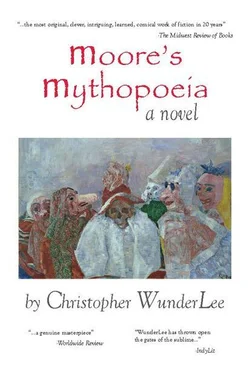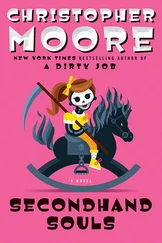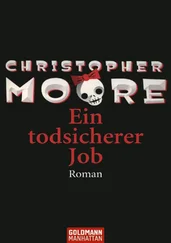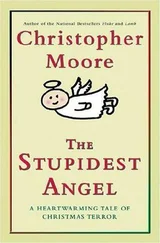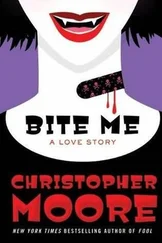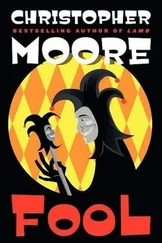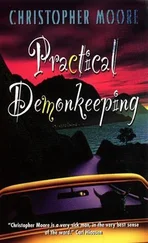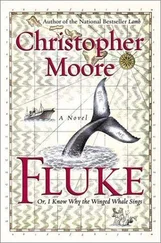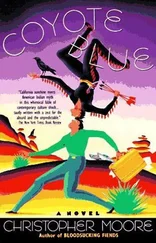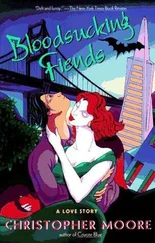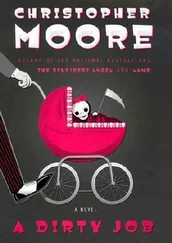Christopher WunderLee - Moore's Mythopoeia
Здесь есть возможность читать онлайн «Christopher WunderLee - Moore's Mythopoeia» весь текст электронной книги совершенно бесплатно (целиком полную версию без сокращений). В некоторых случаях можно слушать аудио, скачать через торрент в формате fb2 и присутствует краткое содержание. Год выпуска: 2010, Издательство: Picaro Editions, Жанр: Современная проза, Фантастика и фэнтези, на английском языке. Описание произведения, (предисловие) а так же отзывы посетителей доступны на портале библиотеки ЛибКат.
- Название:Moore's Mythopoeia
- Автор:
- Издательство:Picaro Editions
- Жанр:
- Год:2010
- ISBN:нет данных
- Рейтинг книги:3 / 5. Голосов: 1
-
Избранное:Добавить в избранное
- Отзывы:
-
Ваша оценка:
- 60
- 1
- 2
- 3
- 4
- 5
Moore's Mythopoeia: краткое содержание, описание и аннотация
Предлагаем к чтению аннотацию, описание, краткое содержание или предисловие (зависит от того, что написал сам автор книги «Moore's Mythopoeia»). Если вы не нашли необходимую информацию о книге — напишите в комментариях, мы постараемся отыскать её.
Moore's Mythopoeia — читать онлайн бесплатно полную книгу (весь текст) целиком
Ниже представлен текст книги, разбитый по страницам. Система сохранения места последней прочитанной страницы, позволяет с удобством читать онлайн бесплатно книгу «Moore's Mythopoeia», без необходимости каждый раз заново искать на чём Вы остановились. Поставьте закладку, и сможете в любой момент перейти на страницу, на которой закончили чтение.
Интервал:
Закладка:
Joseph did not really want to die (anymore than a fairytale wishes to be taken seriously). He was on the bridge because he’d stopped sleeping all night, even with the assistance of his relaxation medication, because he could not control a comatose impression of imperfection, because he felt more left than right, because he had done all that was required of him, because all that was promised to him (in axiopistic splendor) to make him content was a debt he had never been paid.
Joseph was there, that night, to fulfill the purpose of the bridge, to take the final step. He listened for a while to the darkness, to the frogs that sang on lily pads, to the insects that rubbed their legs together to entice a mate, to the rushing nothingness of the distant machines of civilization. He placed his hand on the rail, its icy metallic coldness against the palm of his hand, he was shivering. Then, he lifted himself over the handrail, carefully placed his feet down on the small rim of the bridge and turned to face the void of space. He clung to the steal shafts, allowing his body to feel the presence of gravity, he leaned his chest and shoulders out into the emptiness, he let go of one hand, his heels still firmly on the bridge. Joseph looked out into the darkness, to where the forest met the sky, to the distant, hovering skyscrapers of the city, to the stars sending light from millions of years ago. He wondered how many other people were looking up at the same sky, how many other people saw the stars he was looking at, what were they doing? Was there anyone else out there, on another bridge, with a piece of cutlery against their wrist, on the top of one of the buildings, their toes angled out into space? Would anyone miss him? Would his absence affect anyone? What would they say the next day at work? Would anyone there stop working for more than a second? Would some unknown woman, he was not aware of, weep over the news of Joseph’s death? What would his superiors tell his co-workers? What would the newspapers say, would people know it was suicide? Did people know what that meant? Joseph could not remember the last time he’d heard of a suicide, of someone taking his or her own life. Was that because it never happened? Or, was it simply unreported? Would his wife cry? Would she cry over his death or over some other, uncertain, confused thing? Would she cry because his loss destroyed her or because she had read about the reaction in books? Had she ever wept?
* * *
In girum imus nocte et consumimur igni
It is written over the dooryard, where the lilacs last bloomed, Böhme. I am here to read the bodies. E quant’uom più va su, e men fa male . A sea-span and a folded butler, a moaning gondolier, a brooding corpse sometimes passes by. The throaty voice lifting into the oriental sapphire walls, undiscouraged by the dying Magpies, plunging into the river. The dogs are barking for the poet, a lantern of the diaphragm. A dragon’s femur in two ravished hands dips into the artery, brown from dried voyages back and forth across. He sings endlessly, but not a word to his passenger. His five fingers, mangled and dirty, are the five keys to the gate. He is cloaked in sewn raven carcasses, a monster bird’s beak his hood. The gondolier poled; the boat glided onward; yet ever further the land did stay.
Joseph stared into the ink, the consubtranstantiation of paradise, Wycliffe’s Book of St. John in rocky crags, bloody Chapman’s Homeric odes littering the river, the oscillating guide of feathers and bone. He had died. The dogs were getting closer, in a triad of howls. His eyes weren’t closed; he was not sheltered in a dream. The bodies rose from the sea tied to dead trees with foreign tongues, bawling, pleading, lamenting, praying. Joseph was listening to their bones crackle like seashells. He was asking certain questions to the tenor, who minded only his staff and his endless song. They were swinging their hips towards him, trying to pass navelchords like a sailor’s line to shore. Within their missing eyes were the snorted words of abhorrence for their own kind, a wisdom for only northern gods, the broken chains of the chaos wolf. They were Heloise’s postmen, the Burgundians’ bon-fire of divinity, Salome’s main course, Diolectian’s lizard wrestler, the baggage handlers of anthropomorphosized regrets, sacrifices and felonies. Joseph tried to catch their umbilical safety lines, like twisted sausage grafted to bellies, but he could not keep hold of them. They slipped through his hands like slimy fetuses dropping to the floor in an abortion clinic. Oily appendages from creation, linked to their mothers like leech bites, they dangled from their abdomens like long, flaccid penises. Joseph tried to hold onto them, he tried to catch them, especially the tortured woman with breasts bleeding from nipple spouts, especially her belly phallus, he wanted to touch her Heva penis, feel its texture. She swung it out for him and he felt it whip against his cheek, a snail trail of mucus remaining. But he missed it. The long, stringy sheath of flesh glanced off his forearm and dipped into the sea. She howled, her bowels dripping her children’s body parts. This was Alvin’s birthday. Feast Day of an unmartyred saint, the cannon of a rejected host, the sacrifice accepted because He was an agrarian god. Mother’s position was like a pigeon colliding against a window.
The gondola’s blade slices them in half so that Joseph and the tenor can pass. The dogs are not warning the atheists. They are getting closer, or Joseph is getting closer. Perhaps they have not moved, perhaps the chains are holding them still. The canoe stops on the bony shore and the guide gestures in no small way for him to follow. Joseph rises, wrestles a little with the drunken boat, and listens as his feet shred the flesh of corpses, split bones in two, rip hair from untransmigrated skulls. He can smell the dog’s breath on his neck; feel their rabies teeth against his arm, their wet noses on the small of his back.
ELYSIUM CONVALESCENT CENTER
FOR THE PRE-TESTAMENT
No, not that door. Aquinas’ reasoning incarnate. The tour guide motions for him, his middle finger already in the keyhole. Joseph looks back, licking his salty lips, recognizing an autobiography of faces on the pillars, strapped to overthrown giants. He clings to the feather of a ghostless raven and follows. The house is filled with colorless nightgowns, dancing in a great ballroom with friar bone fixtures. Their heads are crowned with obelisks and goat horns; they speak with their gums, two faced like iconoclastic rogues, angel-headed in the aboriginal dawn.
“Did you feel it?”
“Feel what?” he replied in necromimesis.
“When you hit the water?”
“No. Did you?” he asked.
“Oh! Fuck… yes,” she responded Avalokiteśvaraly, staring blankly at her toes.
“Did you want to die?”
“I didn’t wanna fuckin’ live,” she said, looking into his eyes. “I didn’t wanna be fuckin’ dead, but I didn’t wanna fuckin’ live, anymore.”
“I didn’t think about it, whether or not I wanted to die. I just knew that I should jump off the bridge,” he said, moving forward.
“Did you do enough, enough to fuckin’ die?”
“No.”
“Are you gonna start blabbering like a bitch?”
“Yes.”
“You gonna regret it?”
“No.”
“What the fuck did you want to do, before you died?”
“I wanted to see the world, I wanted to drink wine on the Seine, I wanted to stare into the Yellow River and get drunk in the Bavarian Alps. I wanted to climb the pyramids of Giza, catch a tiger in Uttar Pradesh, I wanted to make love, I wanted to feel the breeze of the ocean as I crossed it, I wanted to taste the snow of the mountains. I wanted to dogsled in the Yukon, I wanted to ferry across the Grand Canal in Venice, I wanted to see a shark kill, I wanted to see the lions of the Serengeti, I wanted to see a panda chewing on those plants, I wanted to meet a person who I could not imagine ever not knowing, I wanted to love someone, I wanted to meet someone and love them for an hour and never see them again. I wanted to hear the music of the earth and know that I’d heard it. I wanted to face death and live to fear him even more. I wanted to read books, see movies, share my thoughts with someone who’d listen, I wanted to stay up all night and watch the sunrise and not feel tired. I wanted to try to find an experience that would complete me.”
Читать дальшеИнтервал:
Закладка:
Похожие книги на «Moore's Mythopoeia»
Представляем Вашему вниманию похожие книги на «Moore's Mythopoeia» списком для выбора. Мы отобрали схожую по названию и смыслу литературу в надежде предоставить читателям больше вариантов отыскать новые, интересные, ещё непрочитанные произведения.
Обсуждение, отзывы о книге «Moore's Mythopoeia» и просто собственные мнения читателей. Оставьте ваши комментарии, напишите, что Вы думаете о произведении, его смысле или главных героях. Укажите что конкретно понравилось, а что нет, и почему Вы так считаете.
